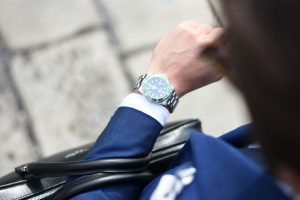Securing payments for automotive components exported to Spain is a crucial aspect of international trade. In this article, we will delve into the three-phase Recovery System designed to recover company funds in the event of payment disputes. Understanding the procedures and recommendations outlined in each phase is essential for ensuring successful payment transactions in the automotive industry export to Spain.
Key Takeaways
- Implementing a structured Recovery System is essential for securing payments in international trade scenarios.
- Phase One involves initial attempts to contact debtors and gather financial information for resolution.
- Phase Two escalates the recovery process by involving affiliated attorneys for legal action if initial attempts fail.
- Phase Three offers recommendations for closure or litigation based on the likelihood of recovery.
- Understanding the costs and rates associated with the Recovery System is crucial for effective financial planning.
Securing Payments Process
Recovery System Overview
In our quest to secure payments for automotive components exported to Spain, we’ve established a robust Recovery System. This system is our frontline defense against unpaid debts, ensuring that our clients’ financial interests are protected.
Our approach is methodical, beginning with a thorough investigation of the debtor’s financial status. We deploy a multi-tiered strategy, starting with direct communication and escalating to legal action if necessary. Here’s a snapshot of our initial recovery steps:
- Immediate dispatch of demand letters
- Skip-tracing and detailed debtor profiling
- Persistent contact attempts through various channels
We’re committed to a relentless pursuit of what’s owed to you, employing every tool at our disposal to recover your funds.
Should these efforts not yield the desired results, we transition to Phase Two, where our affiliated attorneys step in, bringing their legal expertise to bear on the situation. It’s a seamless handoff, designed to maintain pressure and signal our unwavering resolve to recover your payments.
Phase One Procedures
Upon initiating Phase One, we spring into action swiftly. Within 24 hours of an account being placed, our comprehensive approach kicks off. We dispatch the first of four letters, employ skip-tracing, and leverage all available contact methods to engage with the debtor. Our collectors are relentless, making daily attempts to reach a resolution through persistent communication.
Our strategy is clear: establish control early. We implement credit control measures and explore factoring services to mitigate risks. Building strong customer relationships is crucial; we prioritize clear communication and offer incentives to encourage prompt payment.
We’re committed to securing payments efficiently. Our methods are designed to adapt to the complexities of international trade, particularly when managing late payments in Spain.
Should our efforts in Phase One not yield the desired results, we seamlessly transition to Phase Two, where legal muscle comes into play. Here’s a quick overview of our initial actions:
- Send the first of four letters via US Mail
- Conduct skip-tracing and investigations
- Daily contact attempts for 30 to 60 days
Our goal is to secure payments without delay, ensuring the financial health of US automotive suppliers exporting to Spain.
Phase Two Procedures
As we transition into Phase Two, our focus sharpens on legal leverage. The attorney’s letters serve as a stern reminder of our resolve to secure payments. The attorney’s immediate action includes:
- Drafting and dispatching demand letters.
- Initiating persistent phone contact.
Should these efforts falter, we prepare a detailed report outlining the challenges and our subsequent recommendations.
We stand firm in our commitment to recover what is rightfully yours, navigating through the complexities of the Spanish market’s payment culture.
Our rates remain competitive, ensuring you get the best service without undue financial burden. Here’s a quick glance at our fee structure:
| Claims | Age < 1 Year | Age > 1 Year | < $1000 | Attorney Involved |
|---|---|---|---|---|
| 1-9 | 30% | 40% | 50% | 50% |
| 10+ | 27% | 35% | 40% | 50% |
We navigate these procedures with a clear understanding of the Spanish market and tailor our strategies to ensure the best possible outcome for your automotive components exports.
Phase Three Recommendations
In our final phase, we face a critical decision point. If the debtor’s assets suggest recovery is unlikely, we advise closing the case, incurring no further costs. Conversely, should we see a path to success, litigation may be the next step. Here, you must weigh the potential gains against upfront legal costs, which typically range from $600 to $700.
Our rates are competitive, scaling with the number of claims. For instance, accounts under a year old are subject to a 30% fee upon collection, while those over a year incur a 40% fee. Smaller accounts under $1000 have a 50% fee. Should the case escalate to an attorney, the fee remains at 50%.
We stand by our commitment to a transparent and ethical recovery process. Your trust in our recommendations is paramount.
Remember, our goal is to secure your payments effectively, not to add to the financial burden. Here’s a quick breakdown of our fee structure:
| Claims Quantity | Accounts < 1 Year | Accounts > 1 Year | Accounts < $1000 | Attorney Involved |
|---|---|---|---|---|
| 1-9 | 30% | 40% | 50% | 50% |
| 10+ | 27% | 35% | 40% | 50% |
By following these recommendations, we can navigate the complexities of the Spanish market, mitigating risks associated with payment delays, recovering dues effectively, and overcoming the challenges faced in the automotive components export sector.
Frequently Asked Questions
What is the Recovery System Overview?
The Recovery System Overview includes a 3-phase process to recover Company funds, starting with sending letters to debtors and skip-tracing investigations.
What are the procedures in Phase One?
Phase One procedures involve sending letters to debtors, skip-tracing investigations, and attempts to contact debtors for resolution.
What are the procedures in Phase Two?
Phase Two procedures include forwarding the case to affiliated attorneys for legal action, drafting demand letters, and contacting debtors for payment.
What are the recommendations in Phase Three?
Phase Three recommendations involve either closing the case if recovery is unlikely or proceeding with litigation by paying upfront legal costs.
What are the rates for DCI’s collection services?
DCI provides competitive rates based on the number of claims submitted, with percentages ranging from 27% to 50% depending on the age of the account and whether it is placed with an attorney.
What happens if attempts to collect via litigation fail?
If attempts to collect via litigation fail, the case will be closed, and the client will owe nothing to the firm or affiliated attorney.





